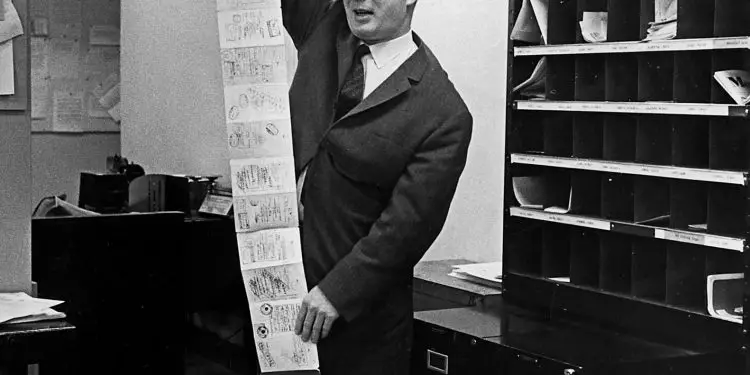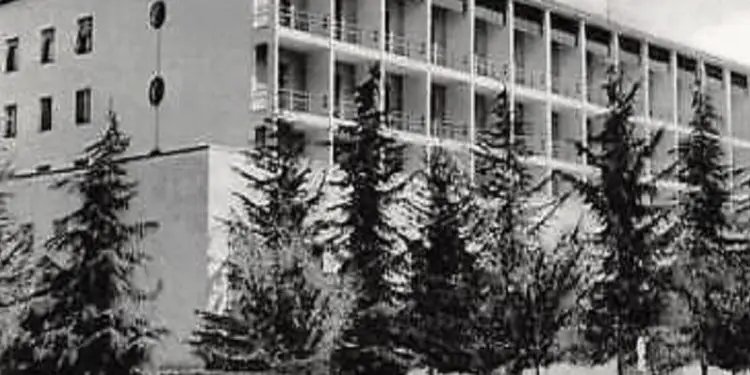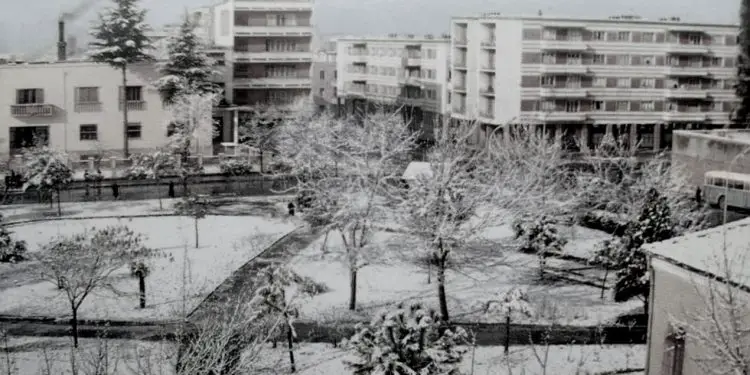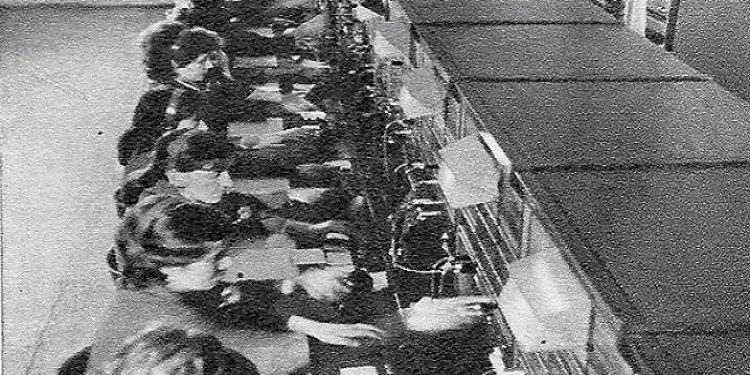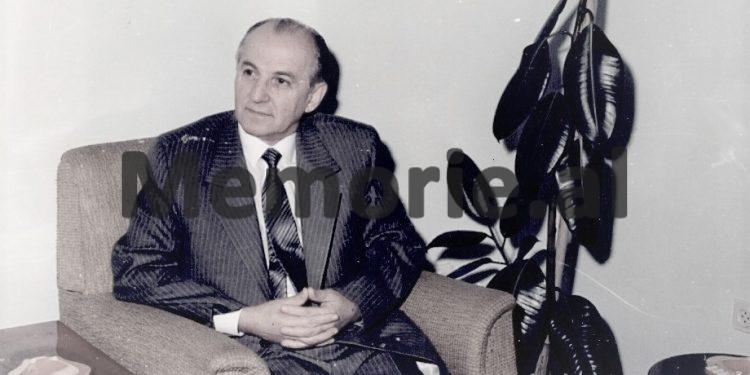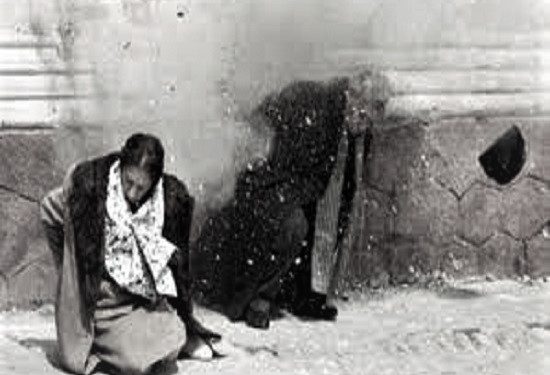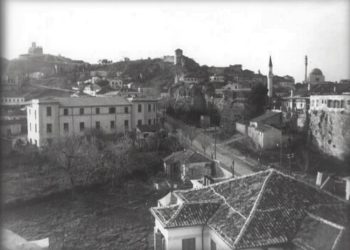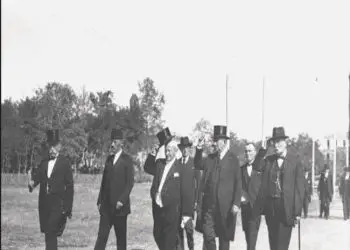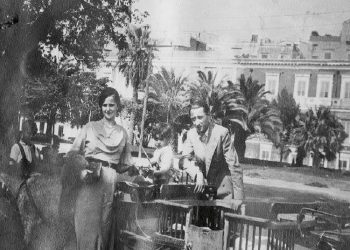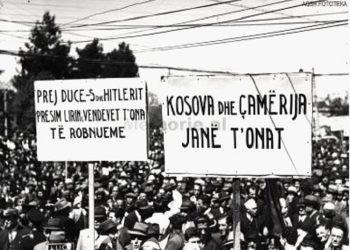Memorie.al / Everywhere in Albania, there is a landscape, mostly rural, where donkeys bray, horses neigh and roosters crow, except for the capital, which generally has a modern structure, but mostly, it looks like a bunker with a round top. Thousands and thousands of them appear in the landscape, whose appearance resembles prehistoric statues. If East Germany is the place where walls are built, Albania is the place where around 100 thousand bunkers are built. Both these countries, in 1960, started their construction, when the communist governments believed that a hostile world was conflicting with them.
In Albania, bunkers have been used only in special cases for military training, while some of them have been destroyed. Beyond were military outposts, giving the impression of a bucolic village, which brought to mind the impoverished past of this country, whose people, for the most part, remained occupied for nearly 500 years by the Empire. Ottoman and then, lost the world’s attention to Albania, during the last 40 years.
There is great mistrust and a marked decline in the power of the communist government led by President Ramiz Alia, who began opening up the country, which has been closed for decades.
Initially, cautiously and with great modesty, ordinary Albanians talk to Western visitors on the streets and talk about their anger, about the future of the “democratization” program undertaken by Ramiz Alia.
Some Albanians talk about the protests of this spring, which took place at a football match in Kavajë, a city located on the Adriatic coast, where the slogans were directed against the Stalinist doctrine of Ramiz Ali, the successor of Enver Hoxha, which called the end of the “Dynasty Hoxha”.
This is clearly shown in the reliable evidence that at the beginning of May, when Sokol Hoxha, the dictator’s son, who died 5 years ago, present at the opening ceremony of the telephone service with Western countries, at the “Dajti” hotel, was faced with a crowd of people, who called out in the street; “Niku, Niku”! – a reference connection, which was made with the last dictator of Romania, Nicolae Ceausescu.
Sokol Hoxha, is the director of the Albanian Post and telephone service (today Albtelekom, – note ed.). Tirana was buzzing with stories of demonstrations, strikes and violent conflicts in different cities, during these last five months, but the information was still strictly controlled and it was impossible to separate facts from fiction.
Although the farms and factories of Albania resemble those of the 19th century, from the meeting of the western visitors with the Albanians, it appears that they have a high level of education and training.
There are people in their 20s, 30s, 40s or 50s who are shown to be well-informed about events in every corner of the world and about developments in the fields of their specialties, such as; literature, economics, engineering, although they have never had the opportunity to travel outside of Albania.
Most of them were sent to internships to work for one month every year, in cooperatives. “This is a kind of common leave,” says Gramoz Pashko, a professor of Economics at the University of Tirana, showing his work with shovels in the field, together with his students, last October. “Art is only half of the planned goal for specialized employees”, he says.
“Also, we see that relationships have changed, especially among young students.” In fact, the relations between the sexes have changed a lot during the communist rule, in a country that has traditionally been patriarchal.
By the turn of the century, it had become common for a tribe to stone and kill a woman who had committed adultery and where blood feud was a way of life.
In a new study, titled; “Women, Marriage and Family, – traditionalism in the face of modernism in Albania”, Professor Pashko, said that in the recent past, marriages were made and determined by parents and “love in marriage” was an unknown thing.
Based on a nationwide survey, conducted six years ago, among 1,308 Albanians tested, it appears that love was ranked (rated) by 43% of respondents, an exceptional value in marriage, followed by fidelity, at 38.8 per cent.
Similarly, the survey found that marriages undertaken by couples who have been married since the 1960s have been of the couple’s own free will, marking an increasing number of them.
Under the leadership of President Alia, similar changes have occurred in the public leadership of Albanians. Short skirts for women, shorts and jeans for men appear during evening walks by young people in the cities. All these were banned only four years ago.
Similarly, contrary to the strict Stalinist practices of a year ago, the peasants are now allowed to sell, not only vegetables, but also poultry and fresh meat, outside the main shops of Tirana, and the municipal authorities have allowed the establishment of stalls by traders. Memorie.al
The article was published on May 15, 1990
The title is editorial
Prepared for publication, Albert Gjoka




